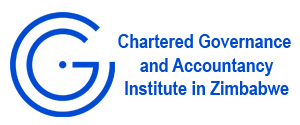It is anticipated that the future of auditing will see substantial changes because of numerous technological developments and changing business environments. To satisfy investors and regulators, auditors need to be technologically proficient, and clients expect a distinctive auditing experience. Auditors must adjust to new technologies, audit quality, and audit transparency as technology advances. The upcoming auditing landscape is expected to be shaped by the following important factors:
Automation and Artificial Intelligence (AI)
Automation of auditing processes is growing in popularity to increase efficiency and decrease the amount of manual labor required. Artificial intelligence (AI) technologies are faster and more accurate than humans at analyzing massive amounts of data, finding patterns, and evaluating risk. This allows auditors to focus on higher-value tasks, such as data interpretation and providing strategic insights.
Big Data Analytics
The auditing profession is changing because of the increased availability of data, which makes it possible for auditors to identify possible risks and opportunities more swiftly and precisely. Auditors can use big data analytics to analyze massive amounts of data and spot trends and patterns that might not be immediately obvious. Additionally, this can assist auditors in spotting possible fraud and other irregularities and offering their clients more perceptive and value-added services.
Blockchain Technology
Blockchain, a transparent and decentralized ledger technology, has the power to revolutionize auditing. It can improve the accuracy and dependability of financial information by giving real-time access to safe, unchangeable transaction data. Blockchain can be used by auditors to track assets, validate transactions, and make sure rules are being followed.
Continuous Auditing and Monitoring
Periodic assessments are a common component of traditional auditing; however, continuous auditing and monitoring is the way of the future. When automated procedures are paired with real-time data analytics, auditors can continuously evaluate risks, spot control gaps, and make timely recommendations for improvement.
The Rise of ESG Reporting
The significance of environmental, social, and governance (ESG) concerns is growing among businesses and their stakeholders. Companies are therefore under pressure to report on their ESG performance, and auditors will be crucial in guaranteeing the dependability and correctness of these disclosures. It will be necessary for auditors to have a thorough understanding of ESG issues and the ability to evaluate how they affect a company’s risks and financial performance. Because they can help them better manage investment risks and comprehend a company’s long-term value creation strategy, investors are especially interested in ESG reports.
Enhanced Collaboration
Auditors and other professionals, including data scientists, cybersecurity experts, and industry specialists, are likely to work together more frequently. Through this partnership, auditors will be better able to comprehend new risks and give stakeholders more thorough assurance.
Regulatory Changes
Regulatory agencies are creating new standards and guidelines in response to the evolving auditing environment. These adjustments are meant to improve audit quality, encourage technology adoption, and handle emerging risks. It will be necessary for auditors to keep up with these regulatory changes and modify their procedures as necessary.
Conclusion
The auditing industry is facing several challenges and trends that will shape its future. To remain ahead of the curve, auditors will need to embrace new technologies, adopt a transparent and high-quality auditing approach, and be flexible enough to adjust to shifting business models and legal requirements. They will be in a better position to satisfy the demands of their stakeholders and meet the expectations of their clients if they take this action.
Richard Ndebele who is a Fellow of the Institute is the Branch Administrator and Technical Officer at the Chartered Governance and Accountancy Institute in Zimbabwe (CGIAZ).

